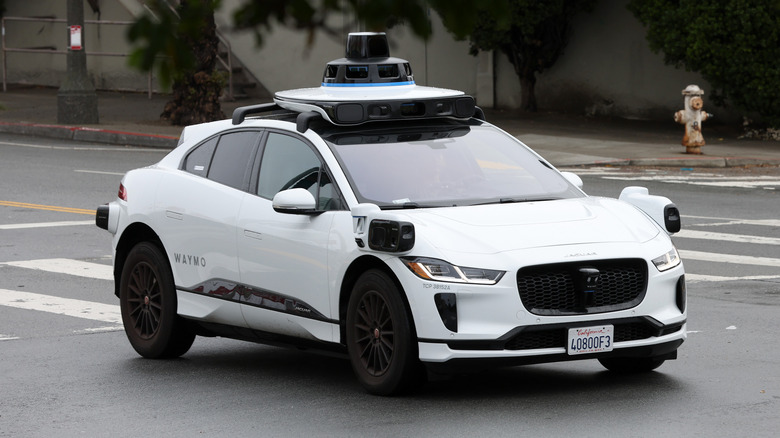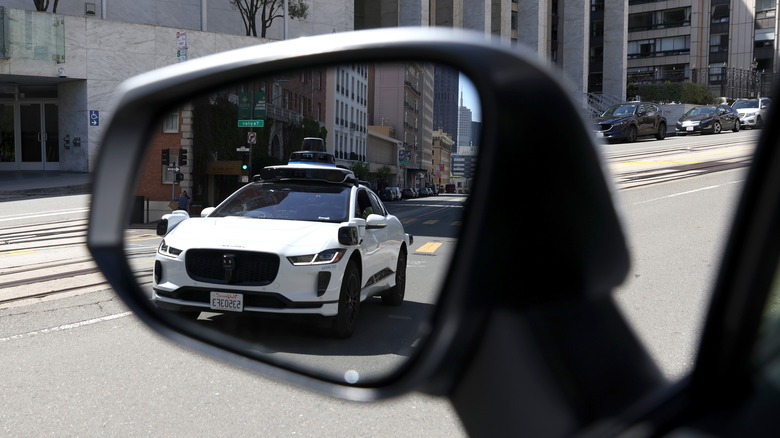After 1 Million Miles, Waymo's Autonomous Cars Might've Found The True Road Danger
In the push towards autonomous driving, traditional automakers like Mercedes-Benz, Ford, and General Motors are hard at work developing consumer-level technology to make cars easier and safer to drive. Mercedes has come the furthest with its Drive Pilot technology which just recently got approved for U.S. roads.
In addition to full scale automakers, many companies like Zoox are working to make autonomous taxi technology and driverless cars a reality in the future. Zoox made news earlier this month when it unveiled its driverless taxi that could shuttle Zoox employees around its various campuses in California.
Another company, Waymo, has been in the autonomous game for many years now and has reached many milestones in the technology — inching closer and closer to bringing it out of its infancy. According to a press release, Waymo hit one million miles of rider-only travel on public roads in its autonomous cars. The technology seems to be mostly safe and no injuries have been reported since testing started, but there seems to be one thing Waymo's driverless cars can't account for.
(Mostly) accident-free
According to Waymo, its cars have experienced only two actual accidents and 18 "minor contact events" (small bumps that didn't result in any harm to either vehicle). That's pretty good for over one million miles.
Interestingly Waymo says that 55% of all collisions were caused by another driver hitting a Waymo vehicle that wasn't moving. Because all the computer code in the world and thousands of hours developing driving algorithms can't account for good old fashioned human error. Waymo also notes that no incidents happened within an intersection, which is typically the place of accidents where a human is driving.
Data collected during the tests also revealed that it was generally safer for its vehicles to travel between 10 p.m. and 6 a.m., as there are general fewer vehicles around at night and substantially fewer pedestrians.
One million miles with only a few actual incidents is nothing to sneeze at, and the data will undoubtedly prove to be vital in future developments of the technology. If only there was a way for the car to account for other people's less-than-stellar driving records.

